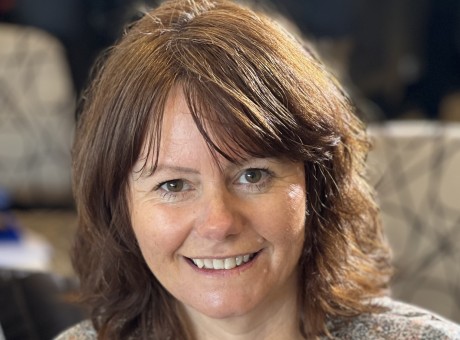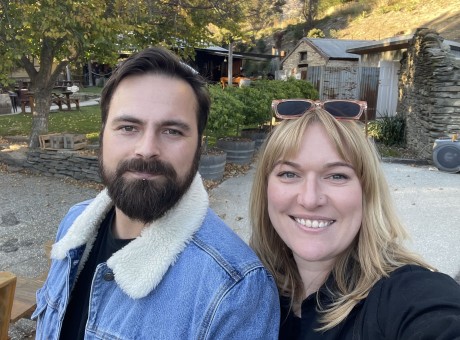Survival mode? That's me every day
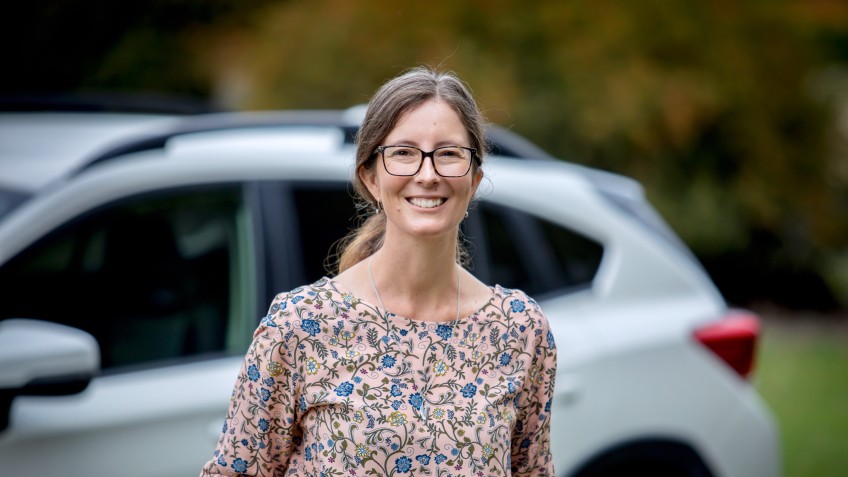
More often than not I feel like I’m in survival mode.
I’ve got three primary-school-aged kids, I work full-time, and my husband is a tradie who leaves the house around 6.15 every weekday.
So when my boss tells me I need to write a piece about how prepared I am (or not) for a big earthquake or natural disaster, I have a quiet chuckle.
Bring it on, AF8, I’m a fricken resilience queen.
This morning alone I dealt with a yoghurt spill on a school uniform, three lunchbox preps with no bread in the house, a sheep on the loose in the backyard, and tears over an unfinished assignment (a child’s not mine), all before the school bus at 8.14.
I spent my 20s travelling intrepid destinations before easy access to the internet, a chunk of that time with small groups of paying guests in my care.
Now, my adventures are closer to home but equally as intrepid.
Last year I rounded off living 18 months in a caravan with my wee tribe while our house was being built.
Sometimes I take three little people tramping for multiple days with food and clothes and tents and sleeping bags and plates and cups and pots and gas cookers and head torches and spare shoes...and I think it’s fun.
While I grew up with the threat of a volcanic eruption in my community’s collective conscience, since moving south, it has been impossible to ignore the threat of a big rupture of the Alpine Fault.
Despite this, other than knowing my kids are familiar through drills run by preschools and schools about playing ‘turtle’ when shaking starts, I haven’t done any specific disaster-readiness work at home.
I think I’ve just assumed that when the worst happens, we’ll deal with it, knowing our camping and tramping kit is ready and waiting in storage boxes in the shed, and that we’re flying by the seat of our pants and (mostly) thriving with a young family all day, every day, anyway.
Job done.
But working through stories and interviews in the last few weeks for the Crux 'Get Prepared' campaign, I realise I can do better than that.
And it doesn’t have to be that arduous.
Plus, plenty of it will make life in my household run more smoothly, disaster or not.
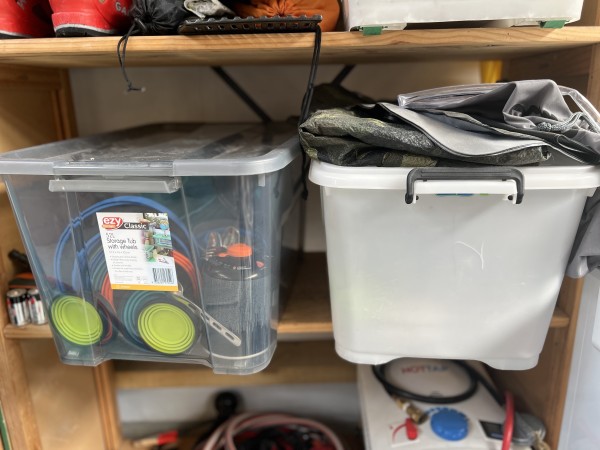
Dual purpose - Well-organised and stocked camping gear can become an emergency kit when needed, right?
Some of it involves ticking off a few simple jobs on a to-do list.
Top of that list - our ‘Christchurch refugees’ story highlighted the need to have a stash of cash in small denominations at the ready for when Eftpos transactions can’t be relied on, so I’ll be doing this.
Next on the list – having a second BBQ gas bottle that sits full, always.
I live rurally and have two 30,000 litre water tanks on my property – so smaller storage containers of water at the ready aren’t needed.
But I want to think about easy filtration options to make sure it’s safe for drinking if I need to rely on manual access to it.
We haven't even put up a TV or any pictures on the walls in our new place - I can't bare ruining the paint job we spent hours slaving over - but if we had, I'd be making sure they were well secured after watching some of EQC's content this week about simple DIY tips and tricks to make a home safer.
Another thing I don't need to tick off - insurance. The daughter of an insurance salesman, having a financial backstop to see me right when the unexpected happens was drilled into me at a young age. Otherwise, checking insurance cover would be on my list too.
However, there are some behavioural changes I do need to commit to.
Treating my fuel tank as ‘empty’ when it gets to around half full is one of them - another tip from Christchurch survivors.
Likewise, not treating ‘how empty can my pantry get before I head to the supermarket and restock it’ as some sort of game of chicken.
It is normal for us to completely empty a pet food bag before we draw straws to decide who’ll squeeze an urgent trip to the vet into their day. We should stop doing this.
We live without a town water or wastewater supply – in a power outage, the pump doesn’t work, our taps don’t flow, and the toilet doesn’t flush.
I already well know the impact no running water or usable toilet can have in a household of five in a relatively short time, and I can imagine what it would mean over days or weeks.
A little unusual, my household already has an emergency toilet set-up.
We have two decent sized buckets, complete with toilet seats and shuttable lids that seal.
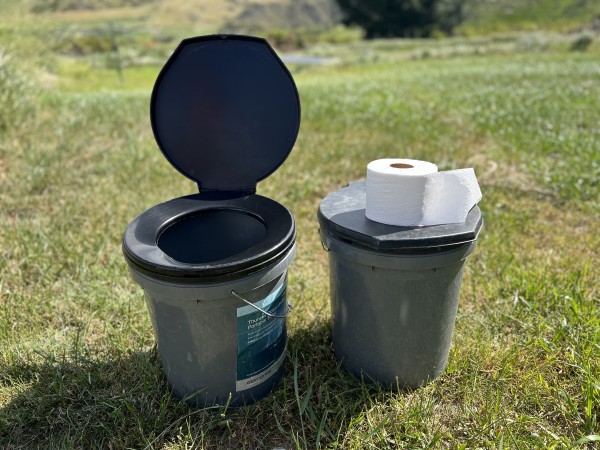
Good to go - surviving with no flushing loo.
Two, you ask? Well, warning, I’m potentially about to overshare here, but will continue with the hope you may thank me one day.
One you half full with water, and that’s your seat for number ones. Well diluted, urine can be tipped out over an area of land without doing too much harm in an emergency, just keep any toilet paper out.
Number two, well, that’s for number twos, obviously. Do your business, sprinkle with some sawdust left over from the firewood chop (or some soil or dry leaves or whatever you can find in an emergency), and eventually, with some help, it can be turned into compost.
It’s actually less gross than you may think. Separating the two buckets for the two purposes keeps it all smelling, if not sweet, less stinky, anyway.
That’s enough on that topic, I reckon. But you can learn more for yourself here.
Living a bit out of town, this once city girl is now surrounded by some very capable people, most of whom have at their disposal plenty of useful tools and machinery.
There’s no shortage of generators, diggers, tractors, four-wheel-drive and all-terrain vehicles and fuel tanks, plus people with the know-how to use them.
During September’s heavy rain and wind event, our valley was smashed, and neighbours rallied to use strops and diggers to right chicken coops and clear downed trees, among other things.
We checked in on each other and turned up at each other’s homes to help out where needed.
Knowing I live in a community like that gives me confidence looking ahead to an AF8 event.
But I don’t want to take that for granted. I pledge to keep fostering a sense of community and interdependence now, every day, with my neighbours, calling on them for help when I need it for the small things and making sure they know they can ask the same of me.
That way, when any big disaster hits, working together to look after each other isn’t anything special, it’s just who we are.






